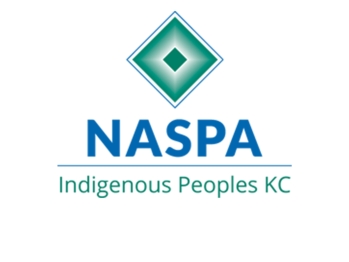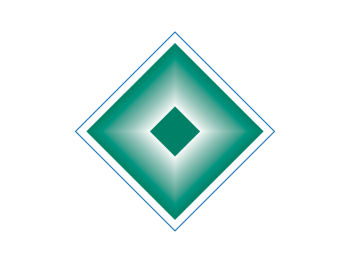
Indigenous Peoples
Indigenous Peoples
The Indigenous Peoples Knowledge Community (IPKC) is comprised of Indigenous and non-Indigenous people who seek to: 1) increase understanding of, and institutional commitment toward, Indigenous peoples in higher education; 2) advance equity-grounded approaches and socially just practices and policies that support and increase the participation of Indigenous peoples in higher education; 3) produce professional development opportunities, scholarship, and research that complicates and re-imagines the profession; and 4) engage across difference and intersecting identities to further explore trends and interpret issues relative to the experiences of Indigenous peoples on campuses.
Click “Join Community” to receive emails from IPKC to stay up to date on professional development & volunteer opportunities, awards, networking events, and more!
Message from the Co-Chairs
Yá'át'ééh, Míiyu chóo'onum, Welcome to the Indigenous Peoples Knowledge Community (IPKC)! We are glad you navigated to our website and we encourage you to take time to review information below to find details on how to connect & get involved, along with recommended resources such as articles, blogs, and books.
IPKC was established in July 2005 and has served as an avenue for Indigenous student affairs professionals to create Indigenous spaces within NASPA, develop mentors & leaders, and build a network of support. As the IPKC Co-Chairs, we are focused on the following three areas:
Accessibility
- Bring diverse voices & backgrounds to the KC
- Increase communication and visibility
- Produce spaces for current and prospective members to engage with IPKC outside of scheduled events
- Amplify the presence & voices of Tribal Colleges and Universities (TCUs) and Native American-Serving Nontribal Institutions (NASNTIs)
Enhancing Connection
- Promote Indigenous scholarship
- Create opportunities for new members to become involved with the KC and remain actively engaged
- Provide networking opportunities and discussions that feature Indigenous speakers to enhance our knowledge and representation as student affairs professionals
Expanding Involvement
- Strengthen the student affairs field by providing IPKC expertise and insight through attending NASPA regional and annual conferences, symposiums, and institutes; planning for, participating in, and attending professional development webinars and discussions; and serving on committees
- Encourage relationship-building and knowledge sharing amongst Indigenous members and across the entire NASPA landscape
Respectfully,
Andrew Yazzie, Diné
Uchme Gollette, Acjachemen
Leadership Team
Knowledge Community leaders are NASPA volunteers who have generously devoted their time to their Knowledge Community. Chairs are elected by the Knowledge Community members while Regional representatives are selected from within the Region. Additional roles are selected by the Knowledge Community.
Complete Your Profile
Login and update your profile.
Get Connected
Sign up to receive emails from IPKC to stay up to date on professional development & volunteer opportunities, awards, networking events, and more!
- Login to naspa.org by clicking the green “Login” button at the top of the page
- After logging in, click on the green “My NASPA” at the top of the page & from the drop-down menu, select “Edit My Profile”
- From the menu to the left, select “My NASPA Engagement”
- Click in the box beside “Knowledge Communities” & search for and select “Indigenous Peoples”
- Click “Save” at the bottom of the page
Additionally, stay connected with IPKC by following us on Instagram: @naspa_ipkc
Get Involved
Volunteer with the Indigenous Peoples KC
Volunteers are critical to the continued success of IPKC. As of September 2025, we have several positions available on our Leadership Team:
- Awards & Sponsored Programs Co-Coordinator
- Region I Representative
- Region II Representative
To apply, follow the instructions below:
- Go to https://naspa.org/volunteer
- At the very bottom of the page, click on “Apply today!”
- Login using your NASPA credentials
- After logging in, you should be redirected to the “Volunteer Central” page (If not, then click on https://apps.naspa.org/engage/openings_new.cfm). Scroll down to the “Indigenous Peoples KC” and find the position your interested in
- Once you locate the position, click on “Apply”
- A popup will come up and you can review the IPKC mission, position description, and upload your application materials (Interest Letter, Resume/CV, and any other items you’d like to add)
- Congrats on submitting your application!
- Quick tip: If you’re unable to log in, try the following items to troubleshoot the issue. Use a different browser (so far Firefox has been working best) OR clear your browser cache OR use a private window within your browser.
If you have questions, please email us at [email protected]. We hope you will join our dynamic and dedicated team!
Awards
Events
One of the best resources available to you is the wide range of professional development opportunities. This list contains both our “Hosted Events,” workshops and webinars that we plan and manage, and some “Related Events,” hosted by the NASPA Central Office or other NASPA Constituent Groups. To see a full listing of NASPA events, please see the Events page.
Indigenous Peoples Blogs
NASPA Indigenous Peoples Blogs
Resources
OF PLACE: RESOURCES THAT GIVE GREATER SALIENCE TO AND UNDERSTANDING OF INDIGENOUS PEOPLES' RELATIONSHIPS TO LAND AND SEA GEOGRAPHIES
The IPKC asserts that American Indian, Alaska Native, Native Hawaiian, Samoan, Chamorro, Taino, First Nations, Inuit, Métis, Zapotec, and other Indigenous relations have pre-colonial genealogical ties to place whether student affairs and higher education theories, practices, and policies recognize it or not. This is to say that dominant foundations of these fields do not often address the historicity of these experiential links and how colonizing learning contexts negate Indigenous peoples relationship to place. This absence, in turn, impacts how Indigenous students, staff, and faculty experience institutional and professional development spaces. Toward that end, the IPKC has compiled a broad set of resources for those who seek to expand their worldview in ways that consider the complexities and dynamics associated with the social agency of Indigenous peoples as they are not only inherent, but integral to the integration of critical place-based practices within settler colonial geographies. As you read the material below, keep in mind that place-based practices, such as land acknowledgements, are context and community specific. What is enacted as a practice in one location and for one community, may sound, look, and feel different when carried out by other Indigenous peoples who are of another location. What is more, these historical understandings inform contemporary political struggles, as well as current educational and epistemological priorities of Indigenous peoples.
ARTICLES (NEWSPAPER)
The Mercury News
June 24, 2019
CBC - Radio Canada
January 20, 2019
ARTICLES (ACADEMIC JOURNALS)
Crazy Bull, C., & White Hat, E.R. (2019). Cangleska Wakan: The ecology of the sacred circle and the role of tribal colleges and universities. International Review of Education, 65(1), 117-141.
Minthorn, R. S. & Nelson, C. A. (2018). Colonized and racist Indigenous campus tour. Journal of Critical Scholarship on Higher Education and Student Affairs, 4(1), 73-88.
APPS
BLOGS
BOOKLETS
BOOKS
MAGAZINES
COLLEGES AND UNIVERSITIES
LAND ACKNOWLEDGEMENTS
PLACE-BASED INITIATIVES
PODCASTS
VIDEOS
